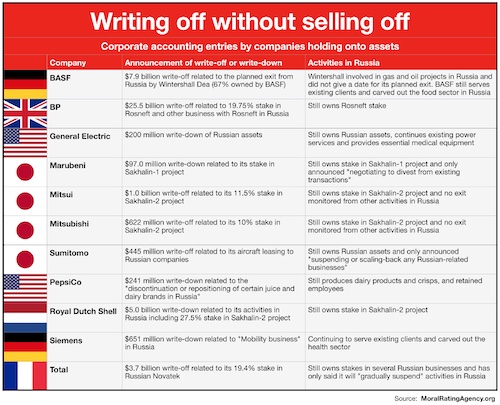 |
Get 'em while he’s still in Congress… Serial liar Congressman George Santos has been immortalized by the National Bobblehead Hall of Fame and Museum.
It has introduced special edition bobbleheads of the slimy Republican Representative from New York.
A Pinocchio-version features an elongated nose and plays clips of Santos’ greatest hits of lies at the touch of a button.
The Milwaukee-based Museum is charging $30 for the bobbleheads that are expected to ship in May.
It plans to donate $5 from each sale to dog-related “GoFundMe” campaigns.
A New Jersey Navy vet claims that Santos, under the name Anthony Devolder, launched a GoFundMe campaign in 2016 that raised $3K to pay for surgery for the vet’s service dog.
Santos allegedly kept the cash.
Phil Sklar, CEO of the Museum, says nobody knows how the Santos saga will shake out.
But the Santos bobblehead “will be the perfect collectible to commemorate this unbelievable story for years to come,” he said.
Pulling a fast one in Russia... London’s Moral Rating Agency is calling out corporations that wrote off rather than shut down their Russian operations in the aftermath of Vladimir Putin’s invasion of Ukraine.
People think when something is written off it has been lost, said MRA founder Mark Dixon. “A write down or write-off just means the owner has put a lower or zero value on an asset at that point in time,” he said. “It is a paper value that can be revised at any moment at the whim of the owner.”
 |
MRA, which launched after Russia’s invasion and is dedicated to kicking Putin out of Ukraine and his regime from Russia, investigated 200 major companies and found 11 of them opted for write-off announcements.
That Hall of Shame includes BP, which made a $25.5B write-off for its stake in Rosneft, but still owns that staff in the Russian oil company.
PepsiCo took a $241M write-down related to “discontinuation or repositioning of certain juice and dairy brands in Russia." The company still makes dairy products and potato chips in Russia.
Siemens took a $651M write-down for its “mobility business” but keeps on serving clients.
MRA suspects that once the Ukrainian war ends, many of the companies that did write-downs will say they no longer have to leave Russia and will write-up the value of their businesses.
Dixon runs a merger and acquisition consultancy in London called ThinkingLinking and the1.
He was a co-founder of the online financial commentator BreakingViews.com, which is now part of Thomson Reuters.
Since 2010, Dixon has owned an apartment in Kiev.
Carnage in journalism… There were 67 journalists and media workers killed in 2022, which was up 50 percent from the year earlier period.
The Top Three killing fields are located in Ukraine (15 dead), Mexico (13) and Haiti (7), according to the report from the Committee to Protect Journalists.
Jodie Ginsberg, CPJ president, said covering crime, politics and corruption can be as deadly as covering a full-scale war.
She noted that governments are continuing to lock up a record number of journalists and “fail to confront the spiraling violence and culture of impunity that have effectively silenced communities around the world.”
Me-too layoffs in hi-tech... There have been about 200K layoffs since the start of last year. https://layoffs.fyi
Amazon has shed 18K people. Google parent Alphabet slashed 12K. Mark Zuckerberg’s Meta fired 11K, while Microsoft trimmed 10K.
Jeffrey Pfeffer, Stanford Graduate School of Business professor, said tech industry layoffs are “basically social contagion.”
Companies resort to layoffs because everybody else is doing it. Layoffs, to him, are the “result of imitative behavior.”
Pfeffer doesn’t believe layoffs result in big cost-savings because many of the cut workers will be rehired as contractors.
Also, companies are firing people whom they paid recruitment bonuses to lure them to take the job in the first place.
When the economy regains momentum, tech companies will go back into the market and compete with others to hire talent.
“They are basically hiring labor at a higher price and selling low,” he told the Stanford News. “Not the best decision.”


 Nike finally throws in the towel and admits that its new MLB uniforms are a flop... A good chunk (34 percent) of TikTokers support a ban on the Chinese app.... "Lede of the Week Award" goes to Wall Street Journal reporter Angus Berwick for story abourt John Jacob Astor IV's gold pocket watch.
Nike finally throws in the towel and admits that its new MLB uniforms are a flop... A good chunk (34 percent) of TikTokers support a ban on the Chinese app.... "Lede of the Week Award" goes to Wall Street Journal reporter Angus Berwick for story abourt John Jacob Astor IV's gold pocket watch. Republican tough guys Josh Hawley and Tom Cotton want Biden to send the National Guard to Columbia University to put an end to student protests... Bernie blasts Bibi for insulting America's intelligence by equating criticism of Israel's government with antisemitism... German court convicts former financial PR exec who claims he wasn't aware that trading on tips is illegal.
Republican tough guys Josh Hawley and Tom Cotton want Biden to send the National Guard to Columbia University to put an end to student protests... Bernie blasts Bibi for insulting America's intelligence by equating criticism of Israel's government with antisemitism... German court convicts former financial PR exec who claims he wasn't aware that trading on tips is illegal.  Southern governors claim they know what's best for their working class, and it's not pay raises... A Ukrainian human rights group played a key role in convincing House Speaker Mike Johnson to hold a vote to send arms to Ukraine, Israel and Taiwan... Trump Media & Technology Group blames short-selling and not lousy outlook for its stock slump.
Southern governors claim they know what's best for their working class, and it's not pay raises... A Ukrainian human rights group played a key role in convincing House Speaker Mike Johnson to hold a vote to send arms to Ukraine, Israel and Taiwan... Trump Media & Technology Group blames short-selling and not lousy outlook for its stock slump. The techniques deployed by OJ Simpson's defense team in the 'trial of the century' served as a harbinger for those used by Donald Trump... People worry about the politicization of medical science just as much as they fret about another pandemic, according to Edelman Trust Barometer... Book bans aren't restricted to red states as deep blue Illinois, Connecticut and Maryland challenged at least 100 titles in 2023.
The techniques deployed by OJ Simpson's defense team in the 'trial of the century' served as a harbinger for those used by Donald Trump... People worry about the politicization of medical science just as much as they fret about another pandemic, according to Edelman Trust Barometer... Book bans aren't restricted to red states as deep blue Illinois, Connecticut and Maryland challenged at least 100 titles in 2023. The NBA, which promotes legalized gambling 24/7, seems more than hypocritical for banning player for placing bets... Diocese of Brooklyn promises to issue press release the next time one of its priests is charged with sexual abuse... Truth Social aspires to be one of Donald Trump's iconic American brands, just like Trump University or Trump Steaks or Trump Ice Cubes.
The NBA, which promotes legalized gambling 24/7, seems more than hypocritical for banning player for placing bets... Diocese of Brooklyn promises to issue press release the next time one of its priests is charged with sexual abuse... Truth Social aspires to be one of Donald Trump's iconic American brands, just like Trump University or Trump Steaks or Trump Ice Cubes.


 Have a comment? Send it to
Have a comment? Send it to 
No comments have been submitted for this story yet.